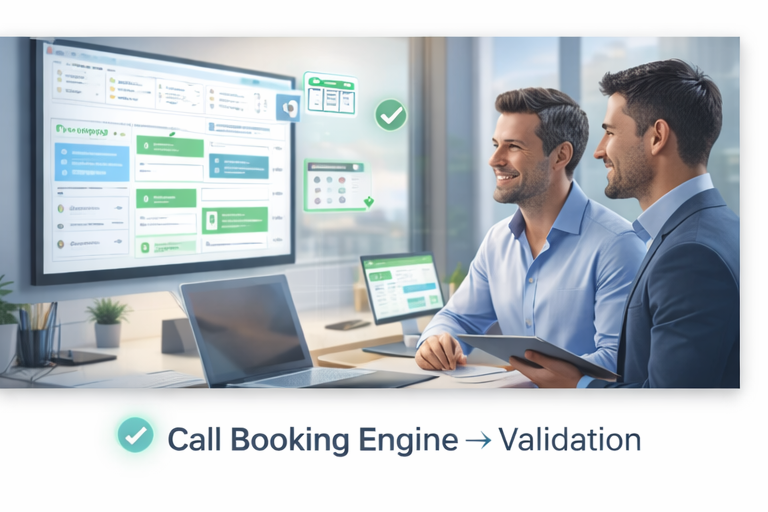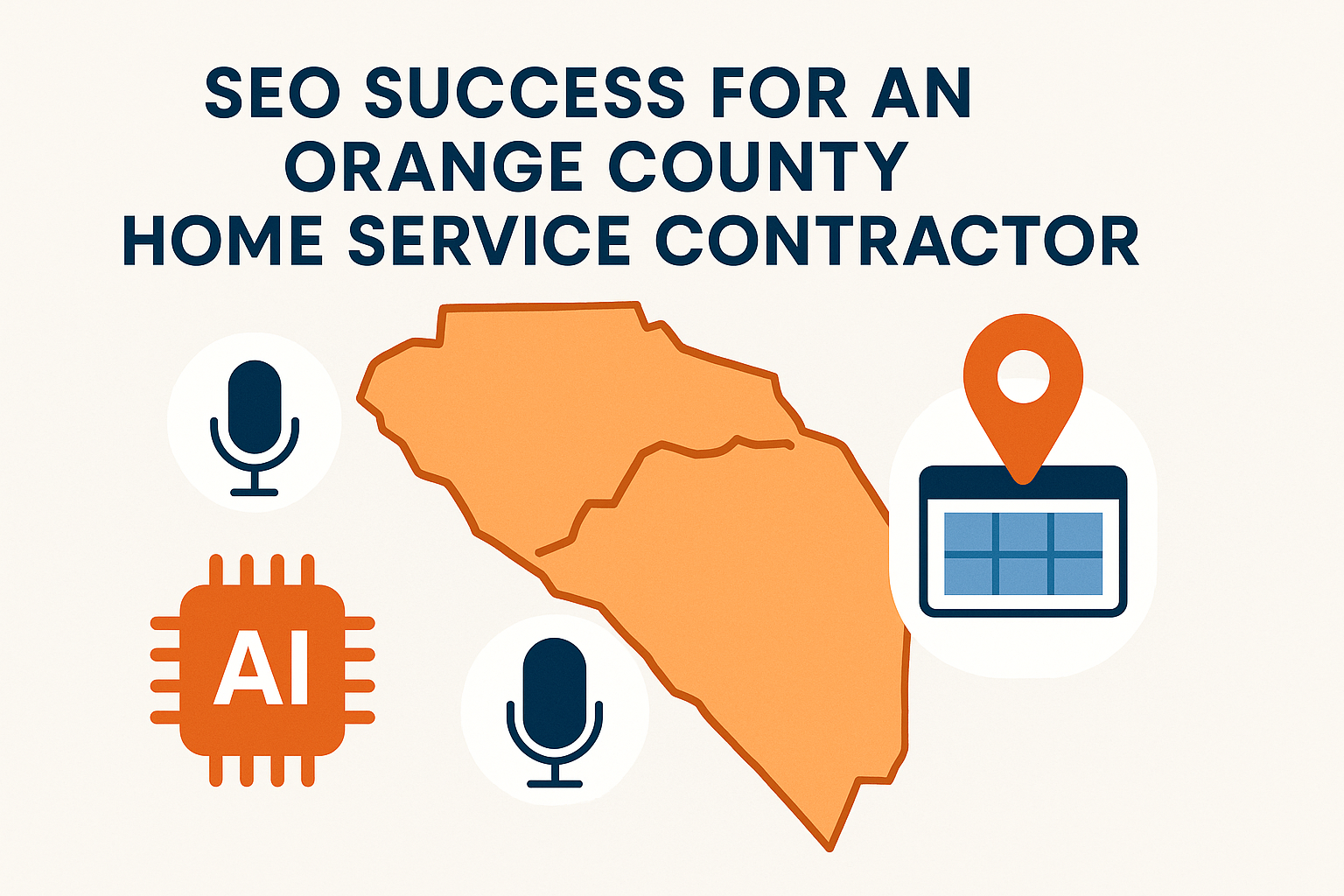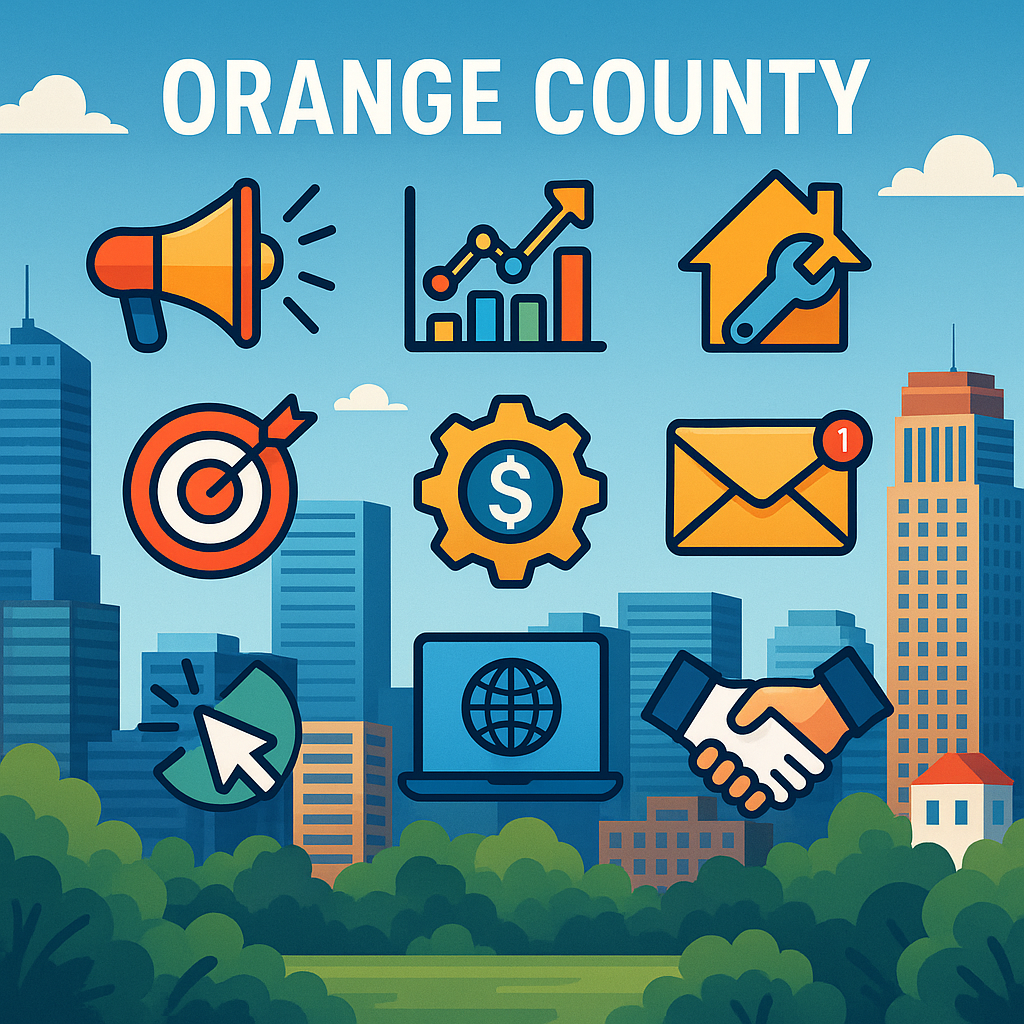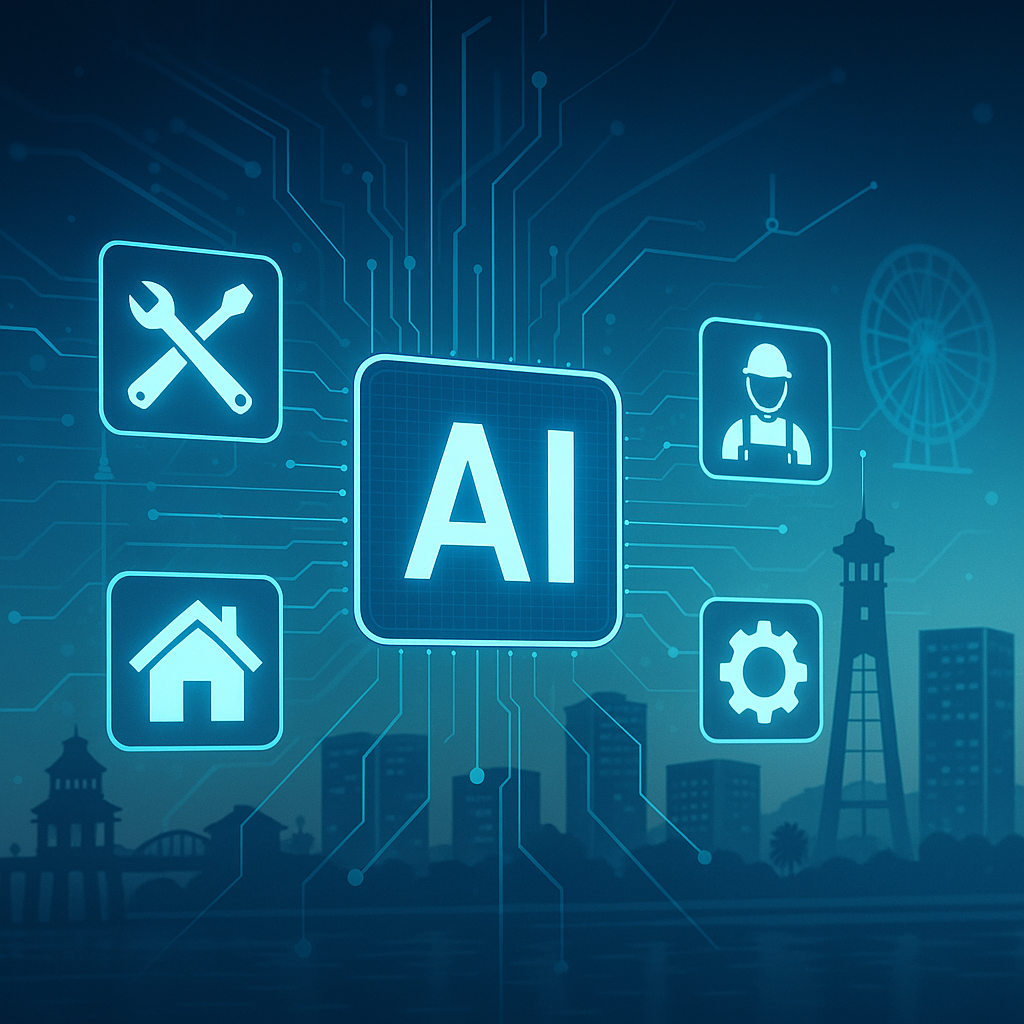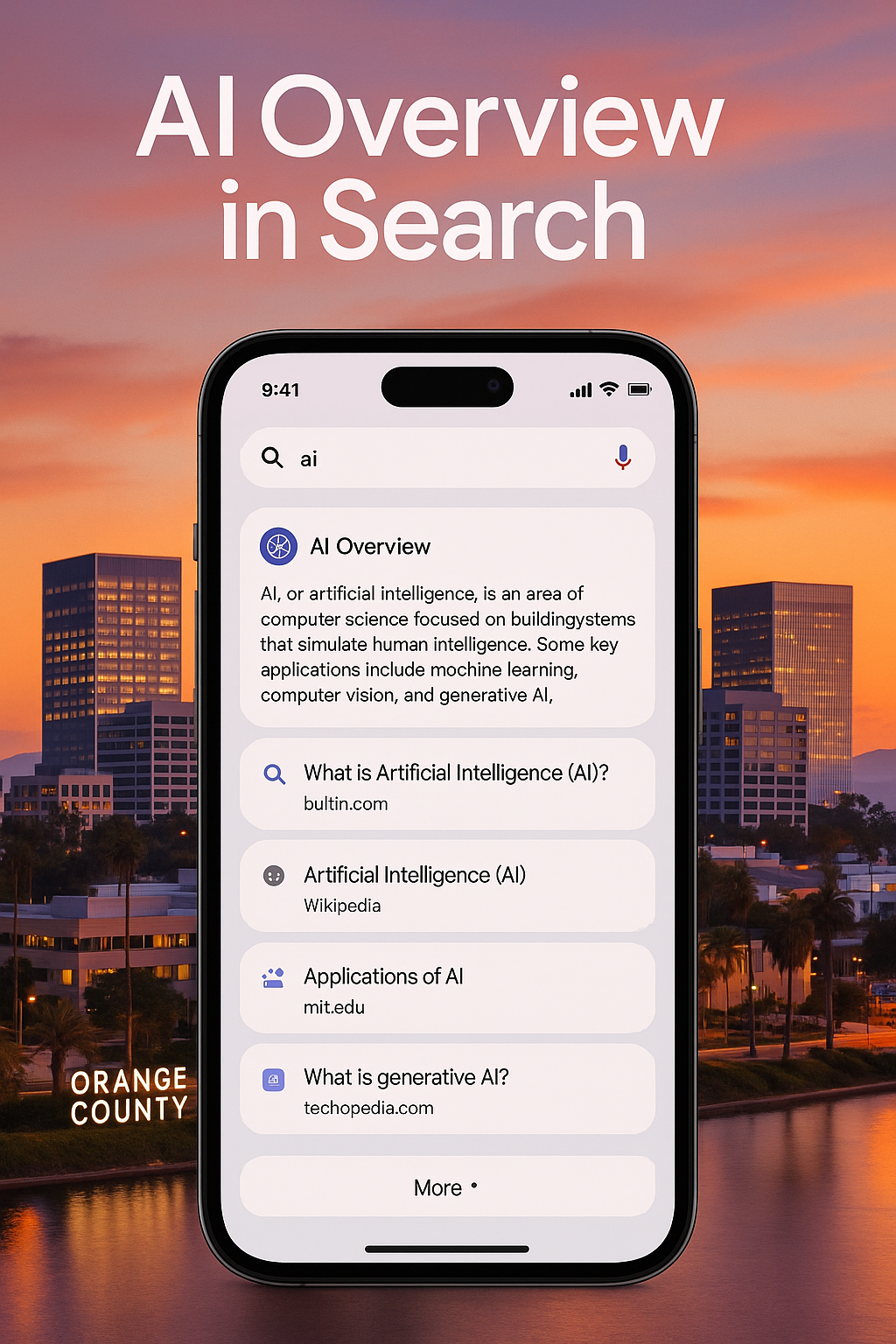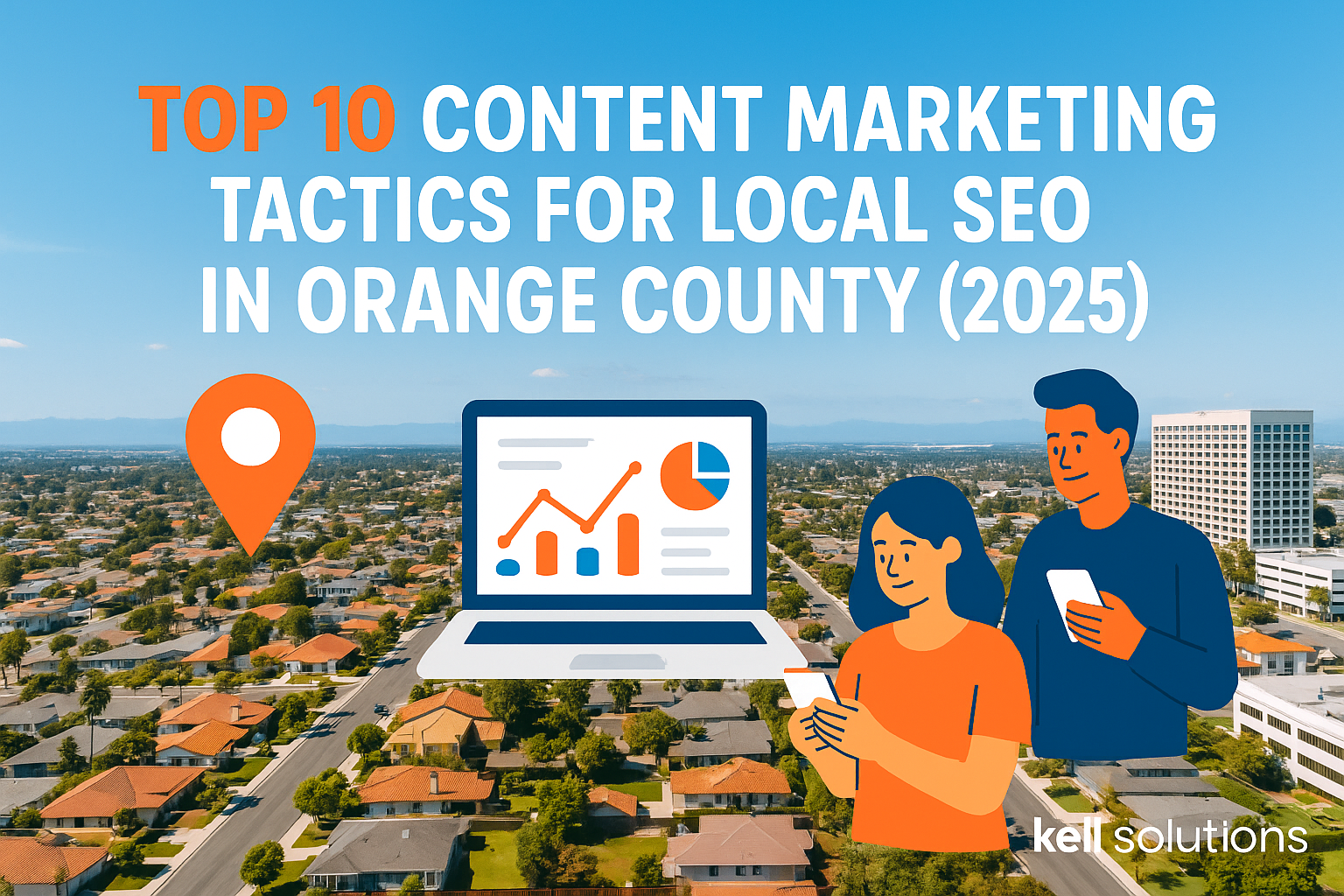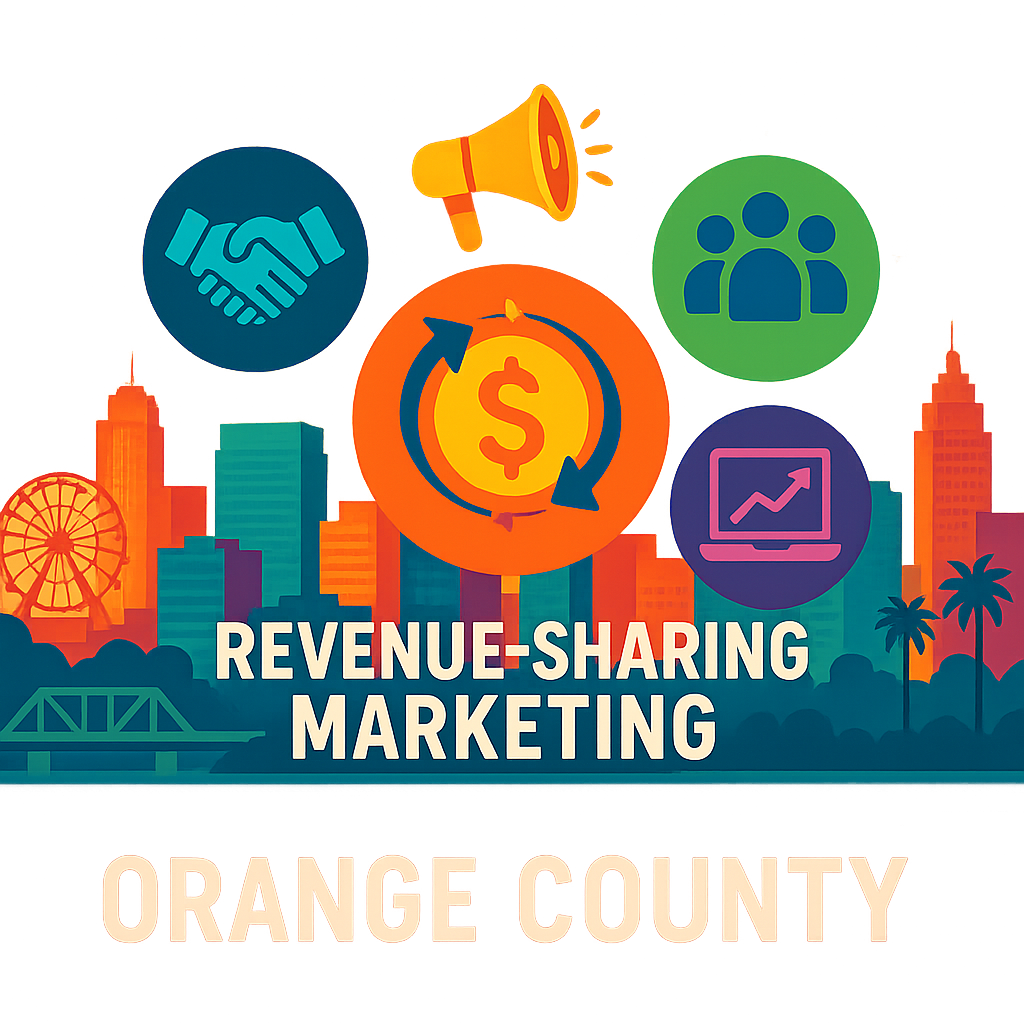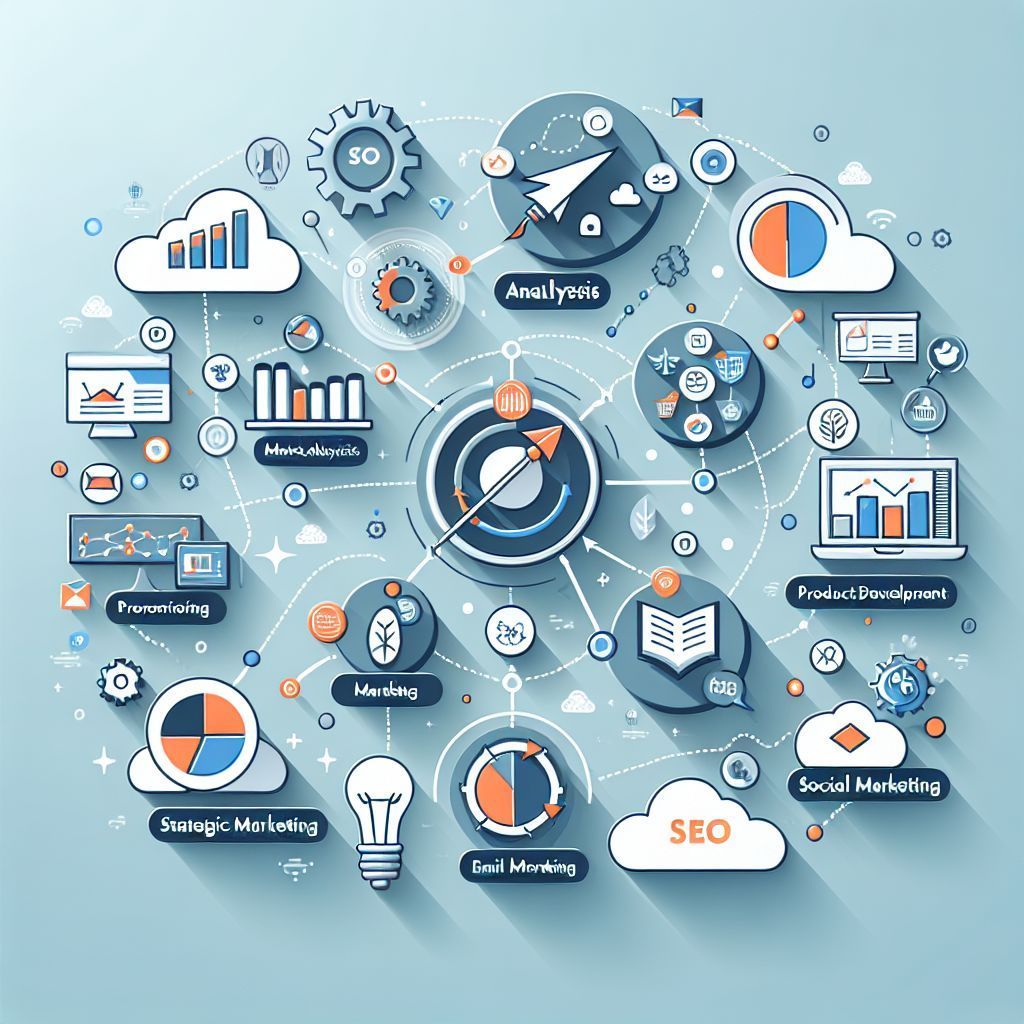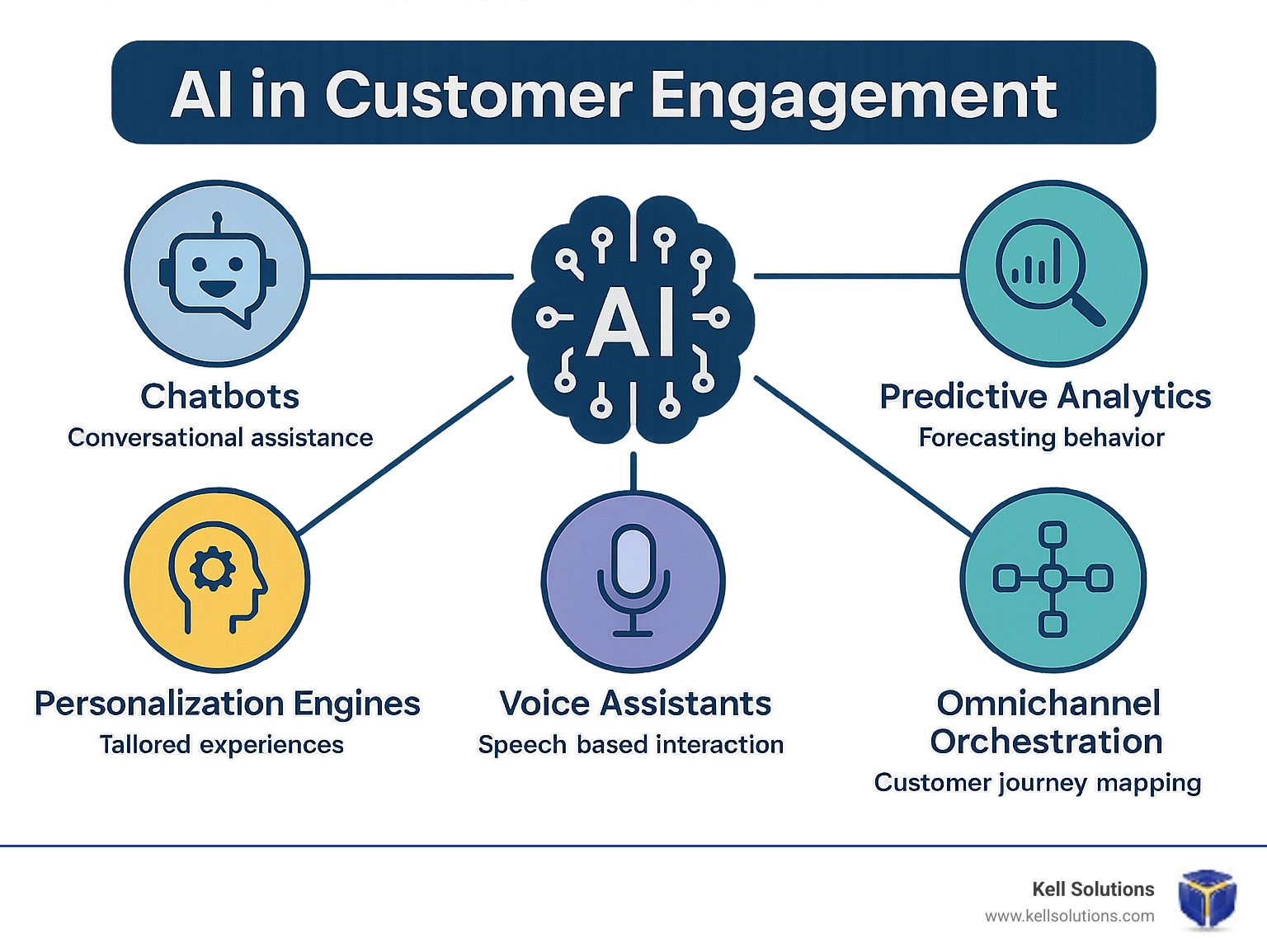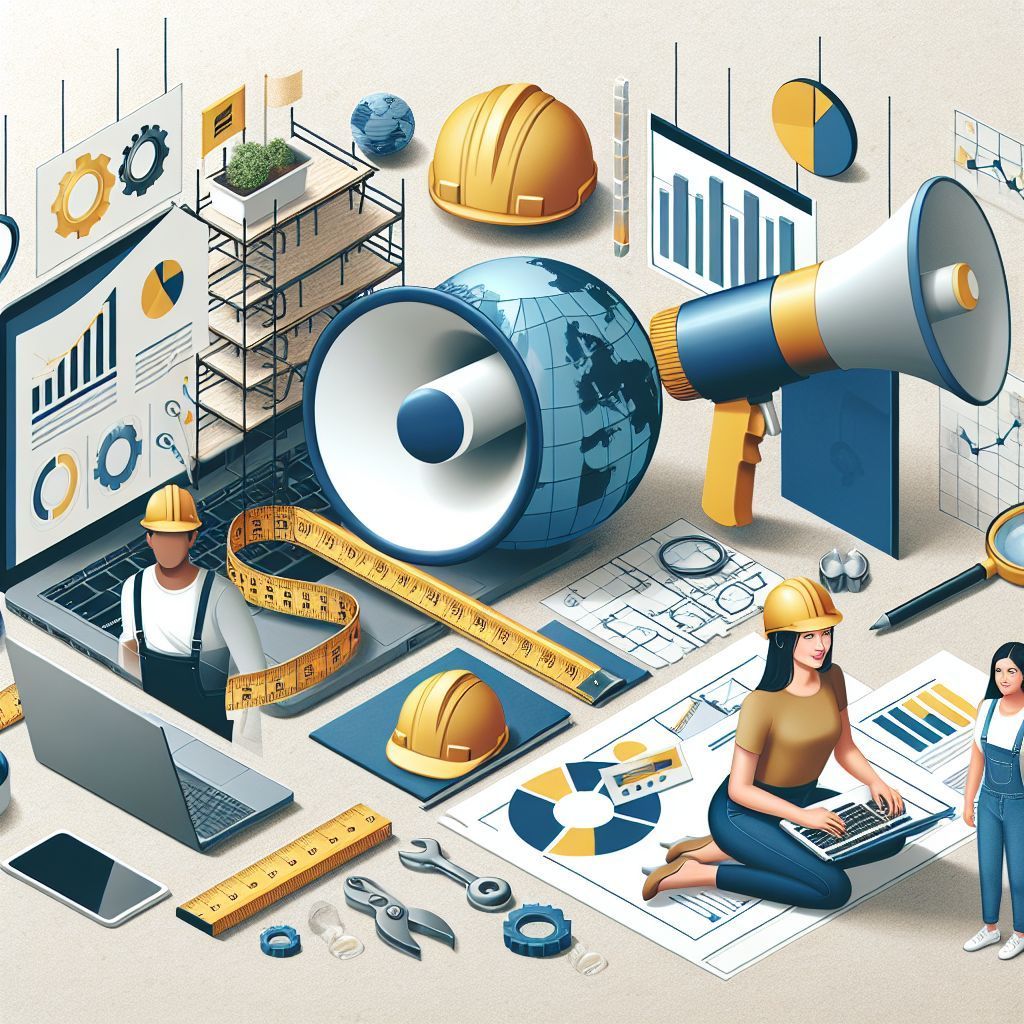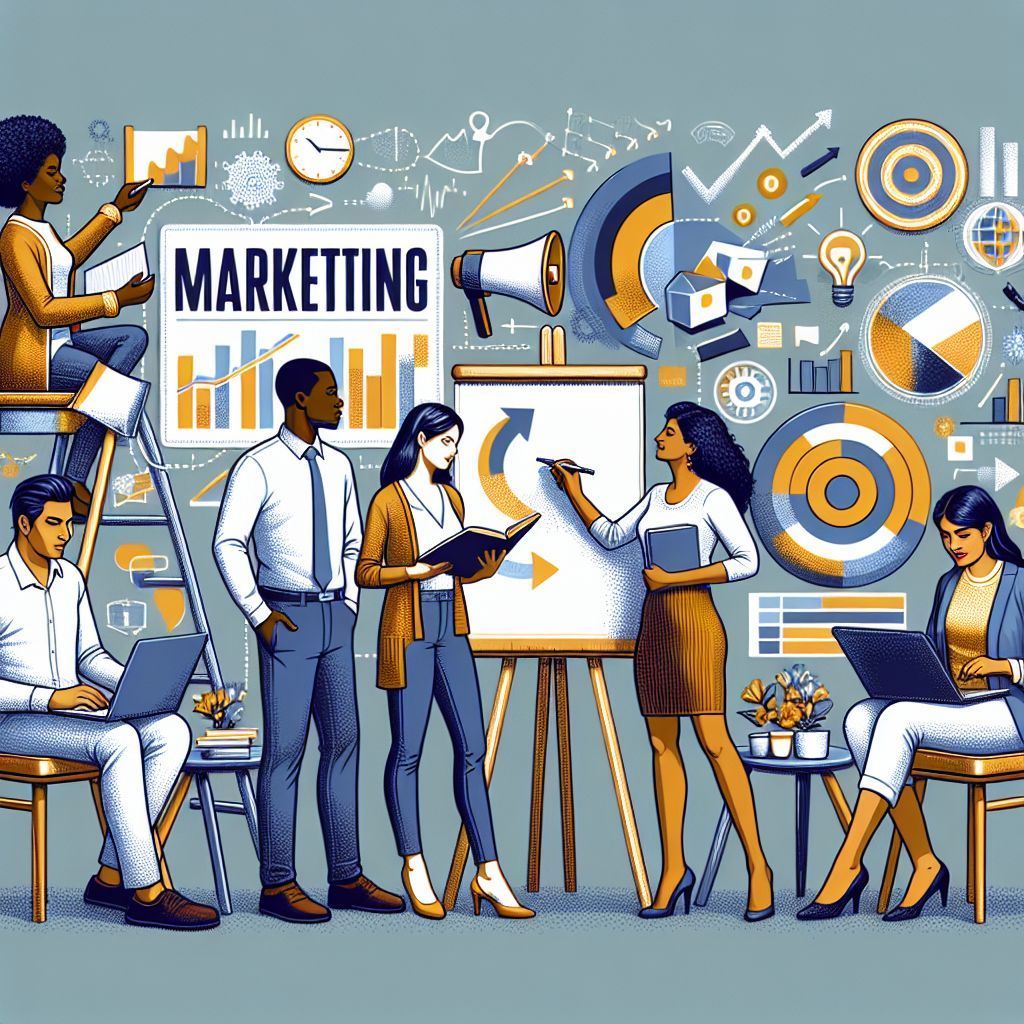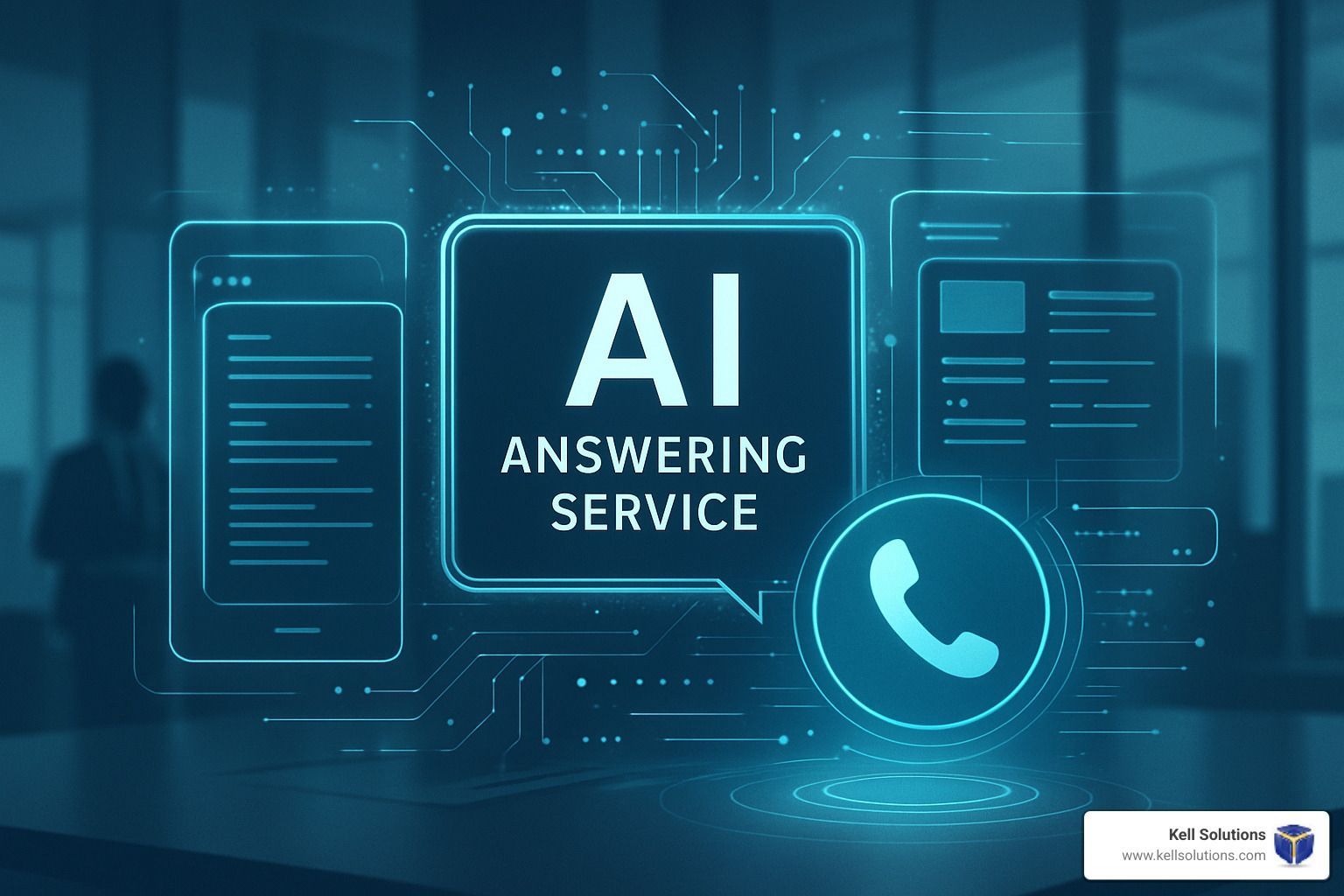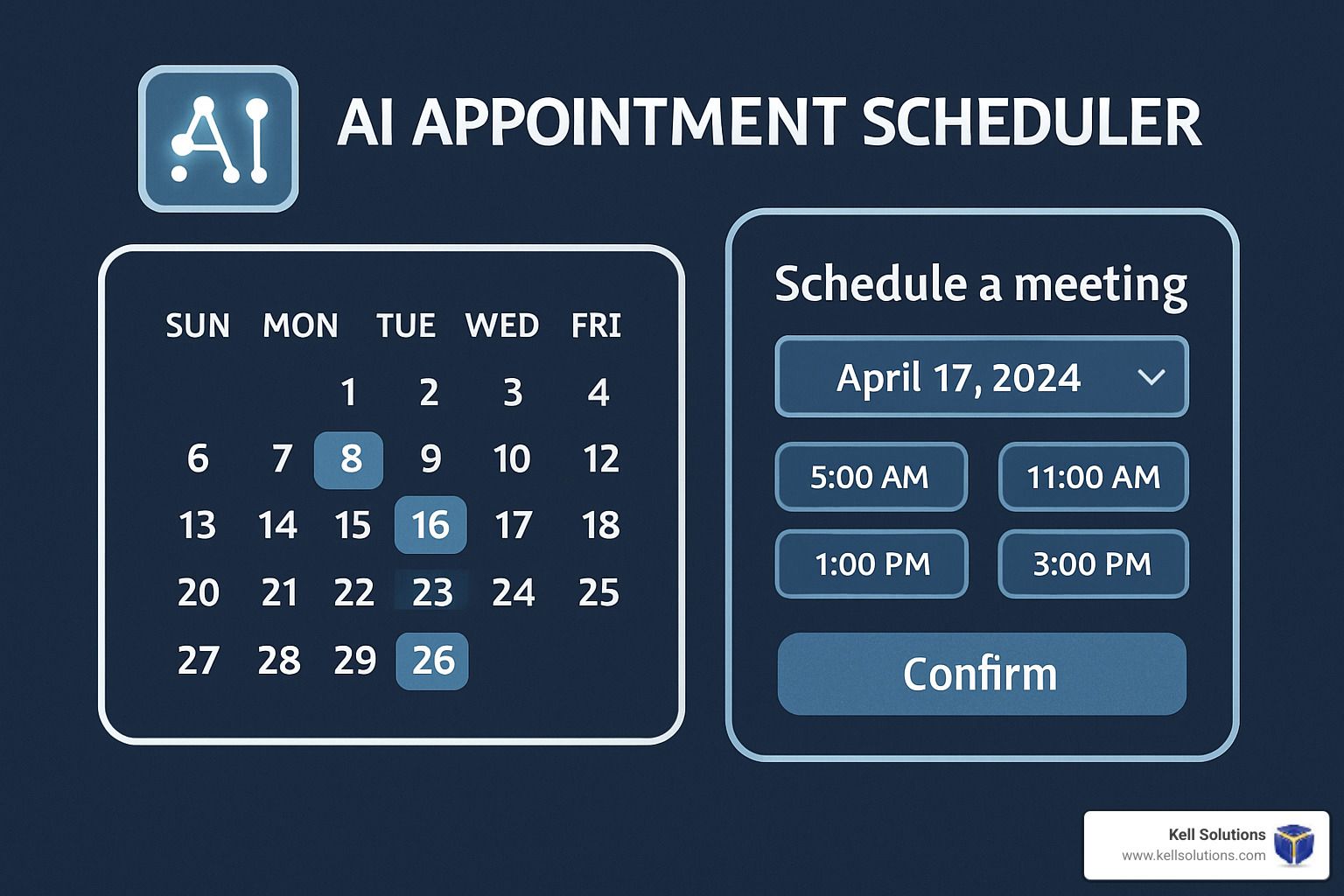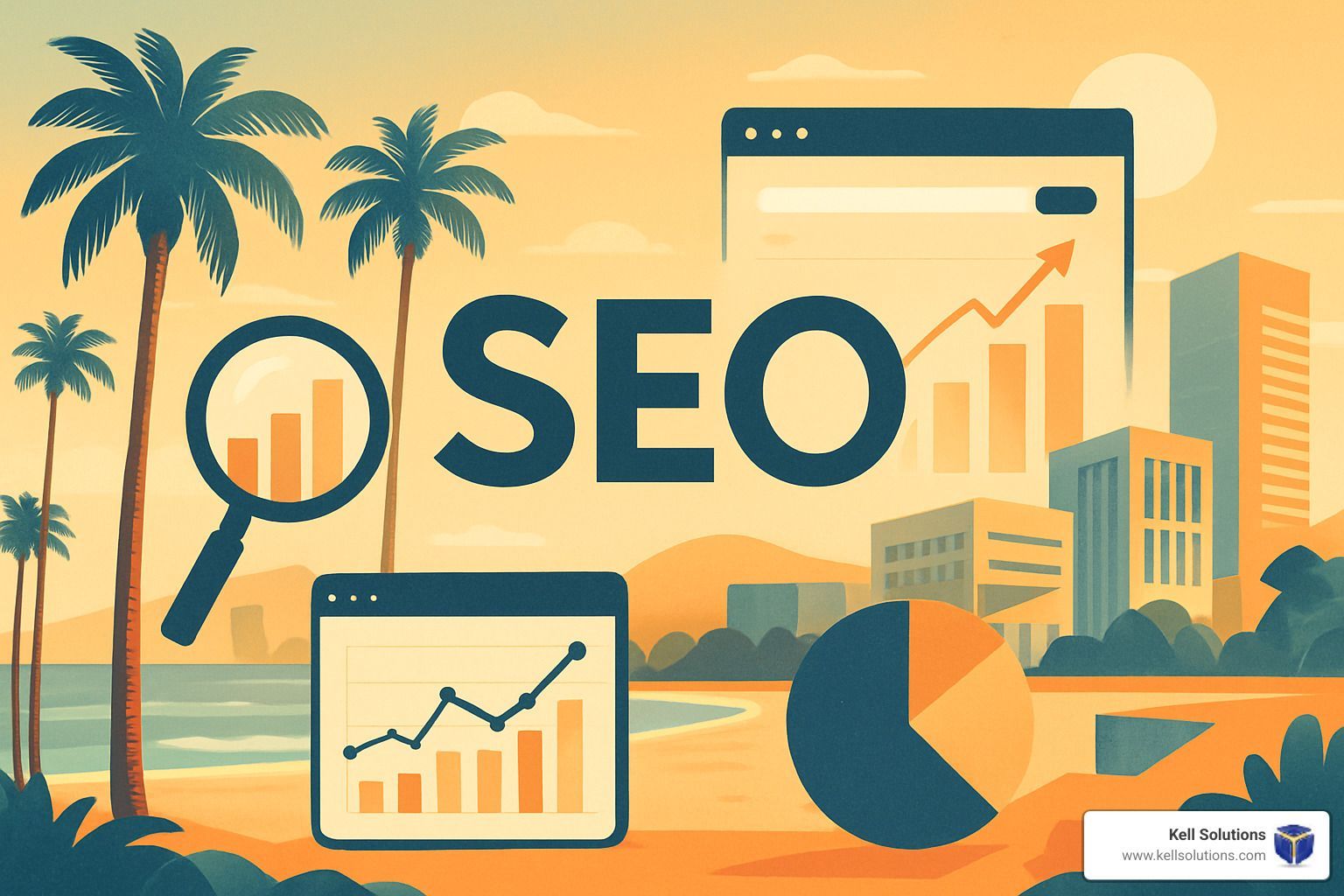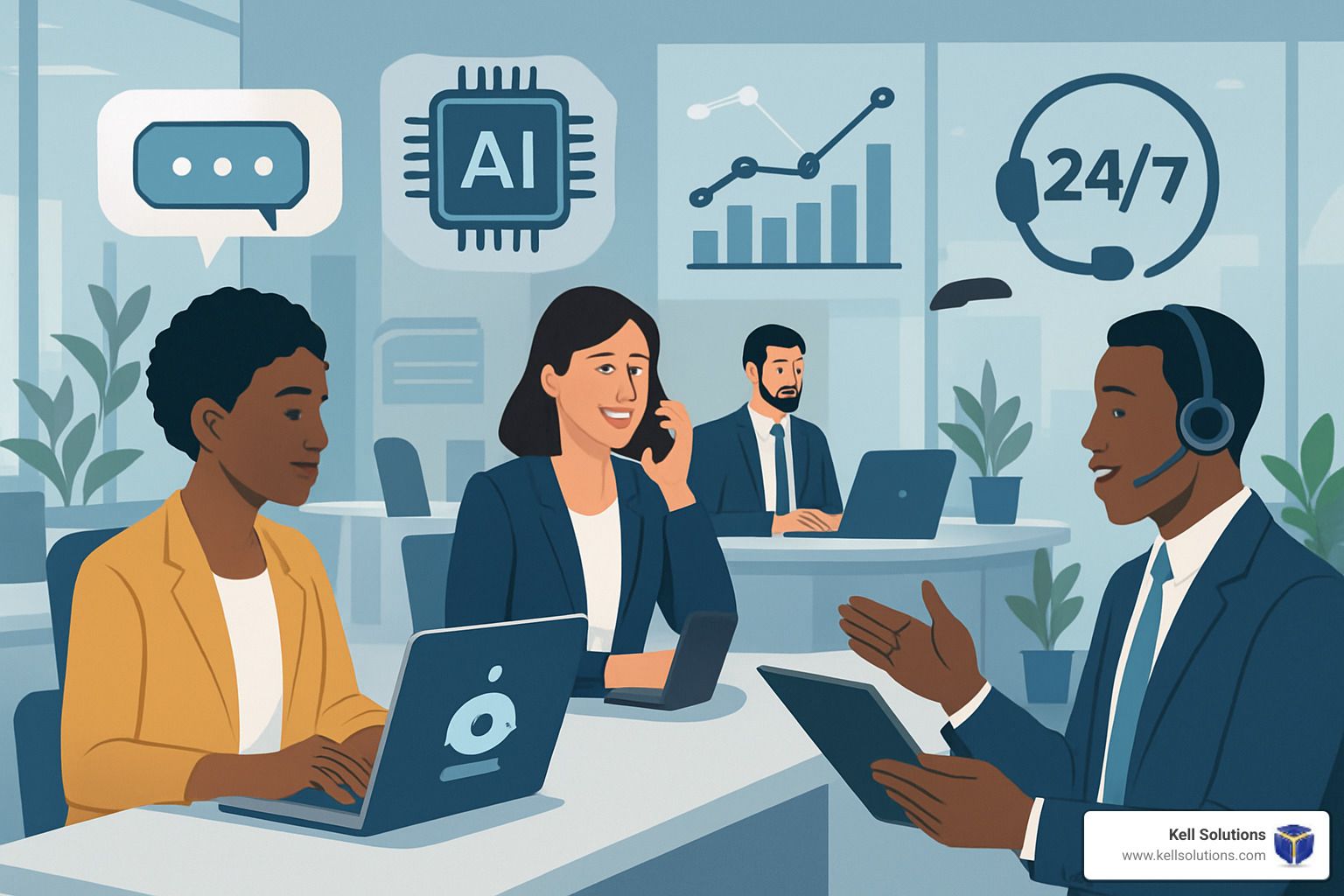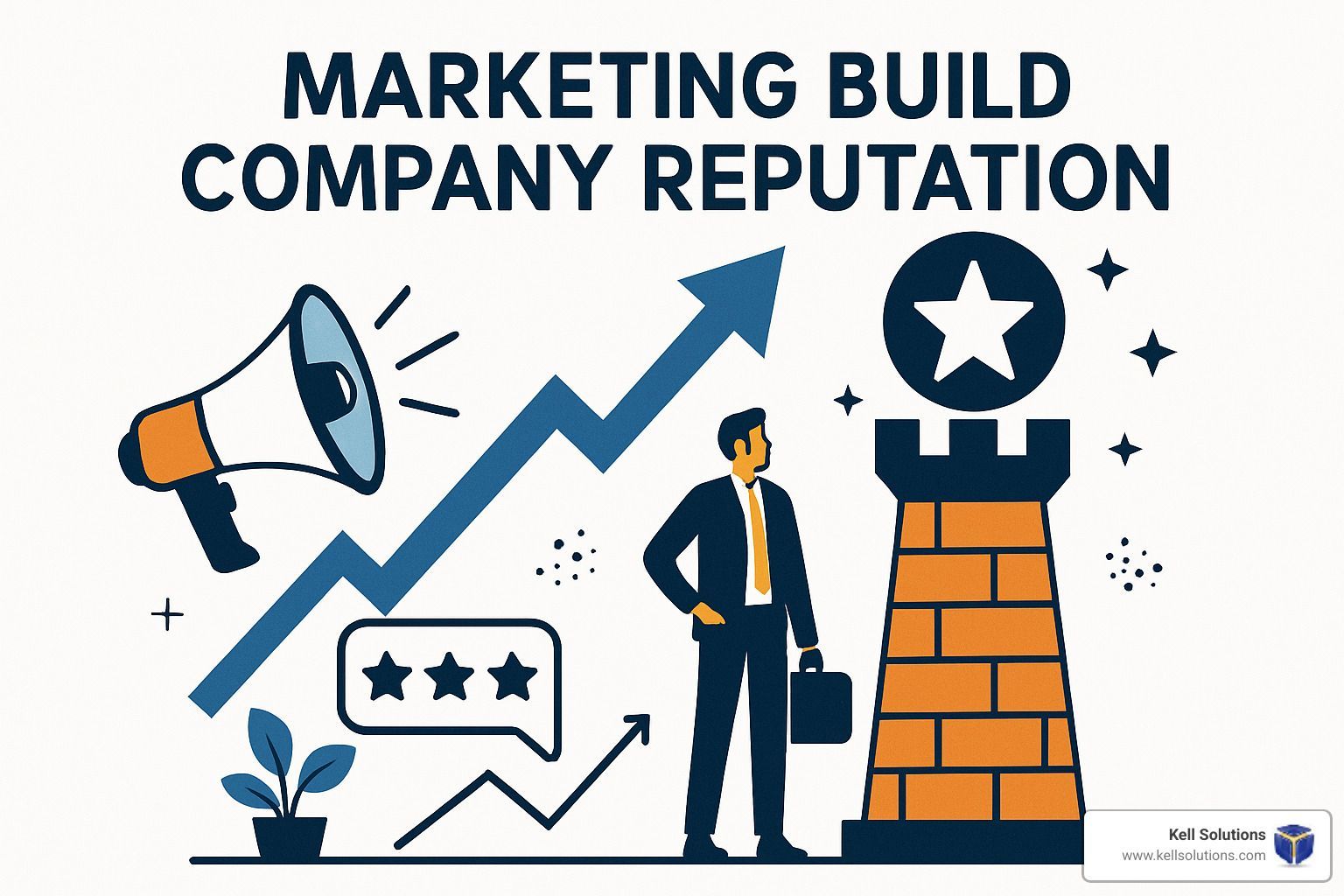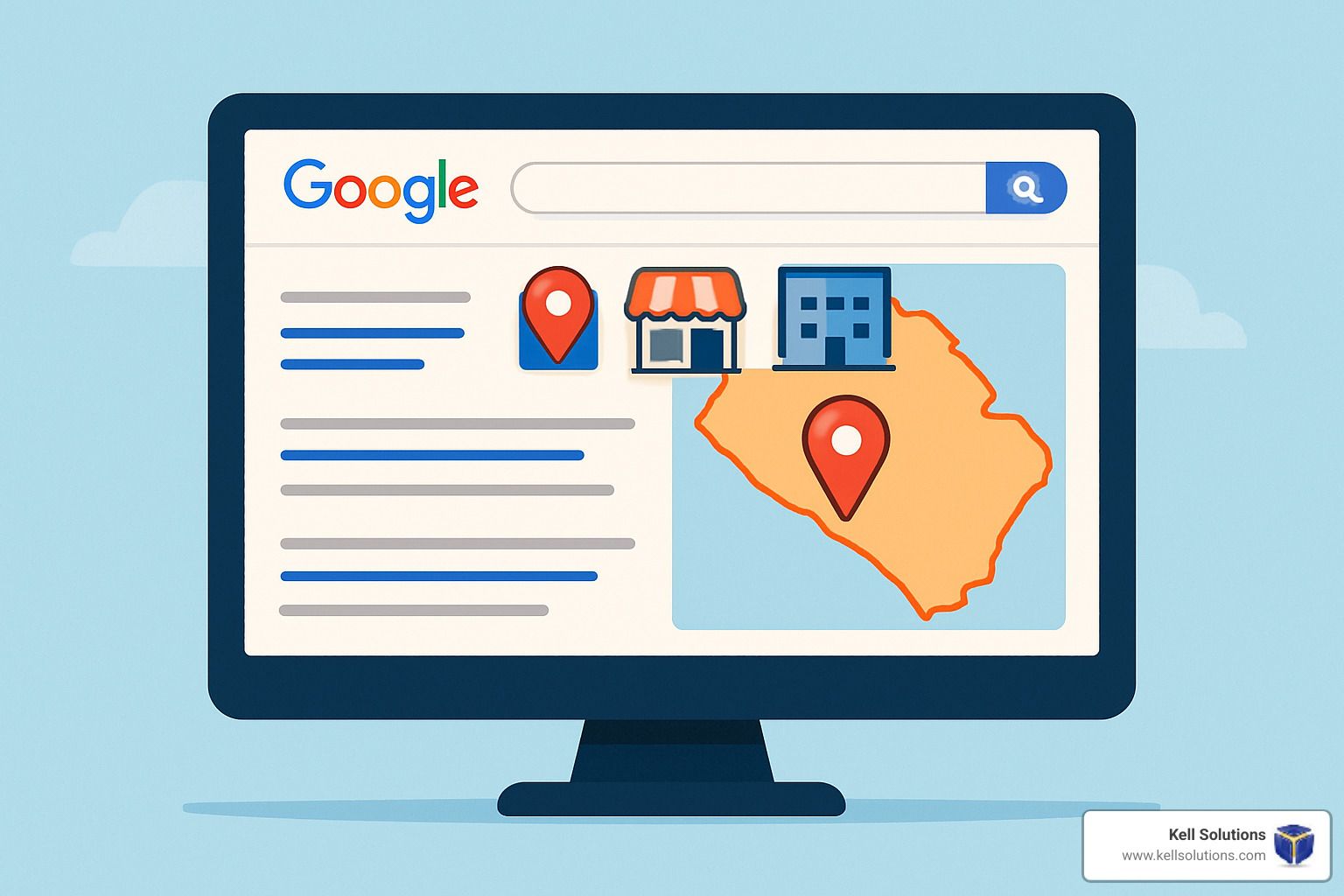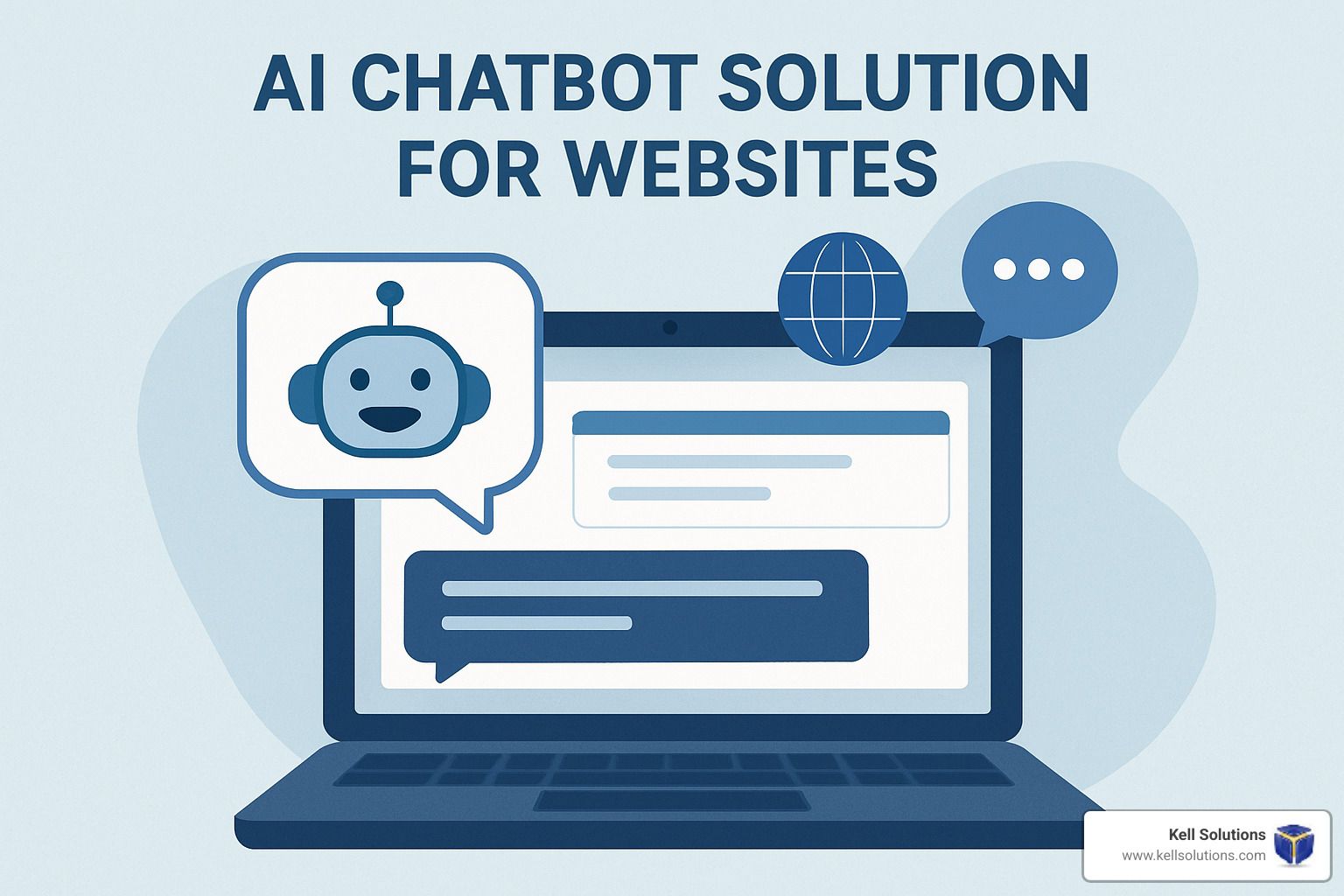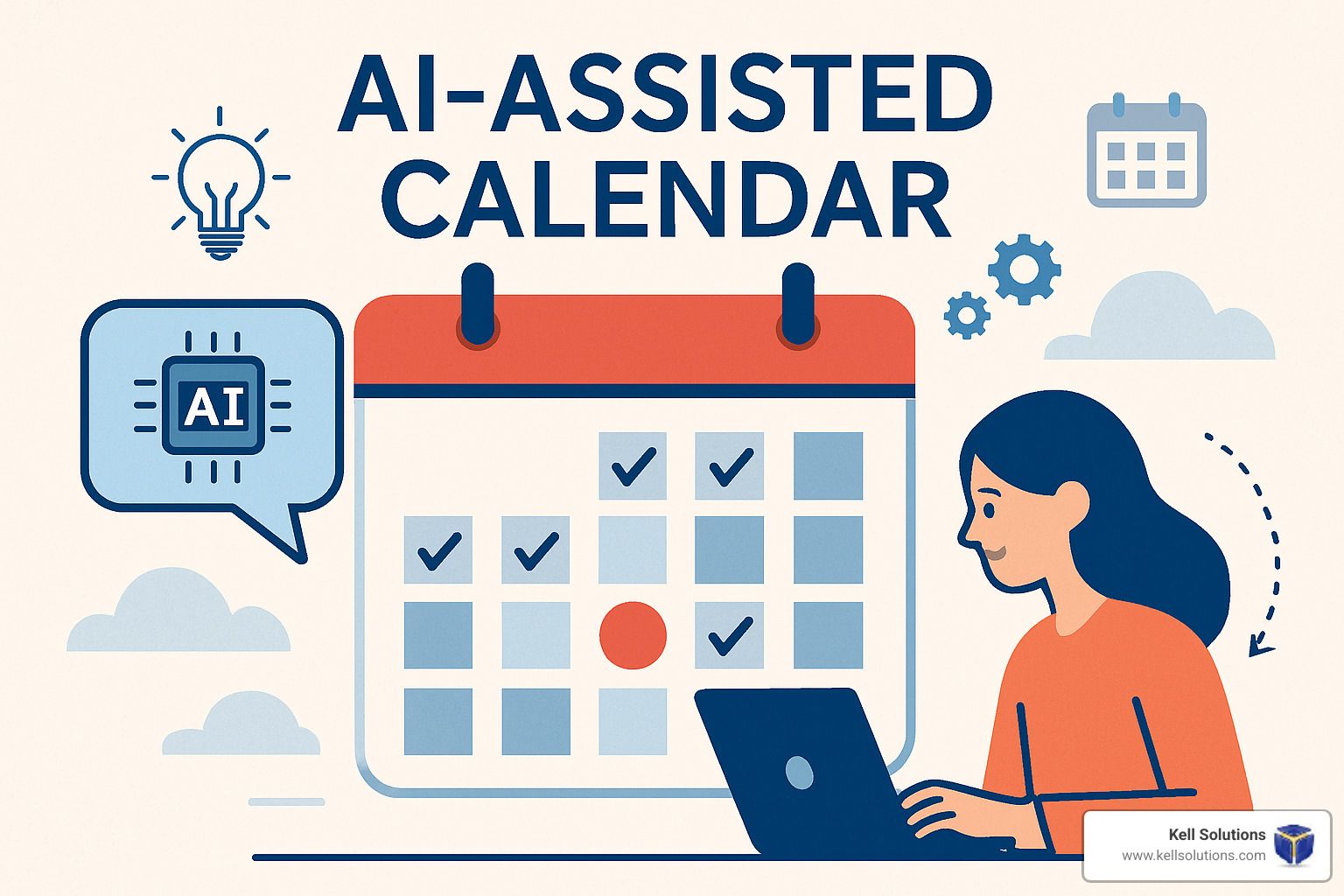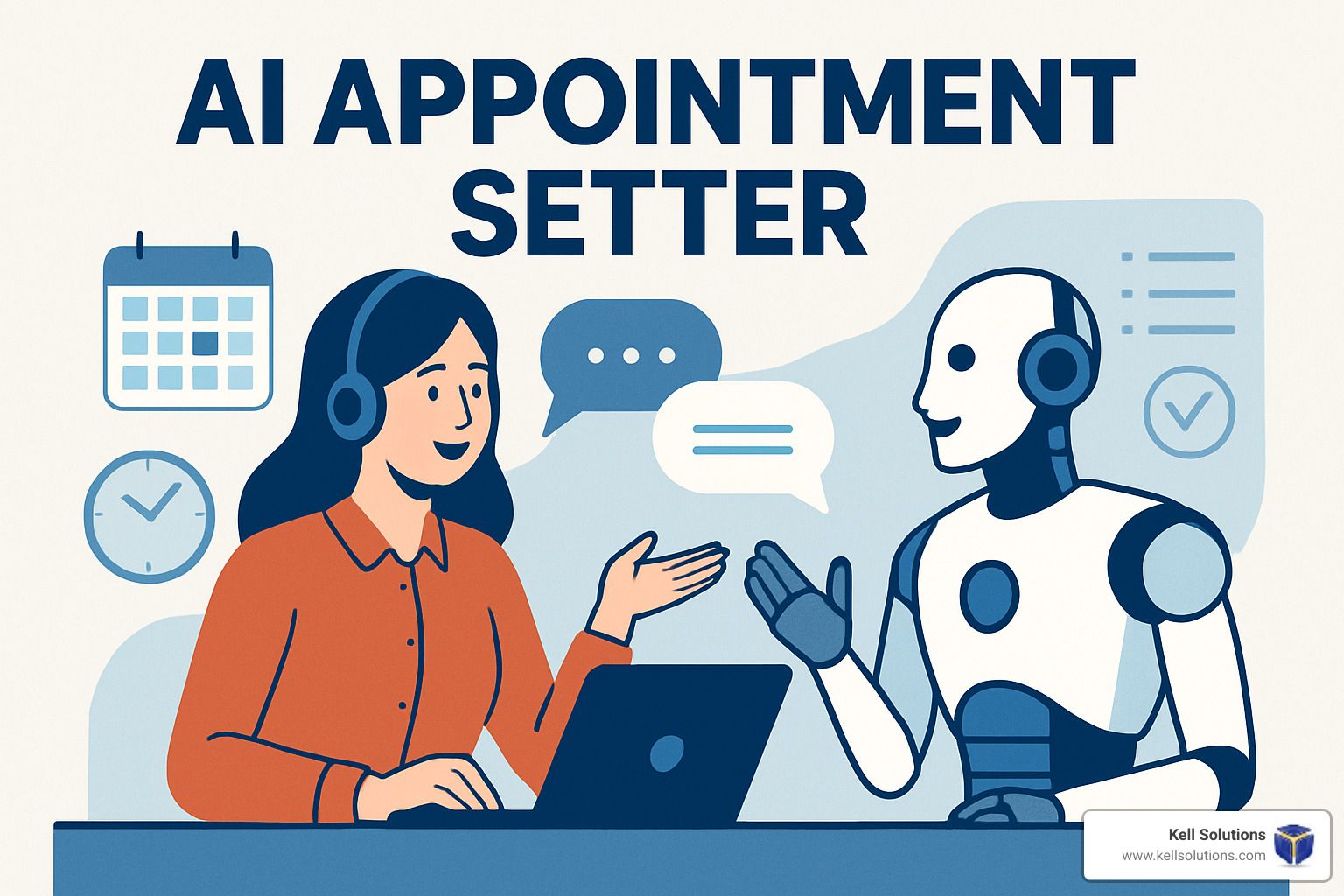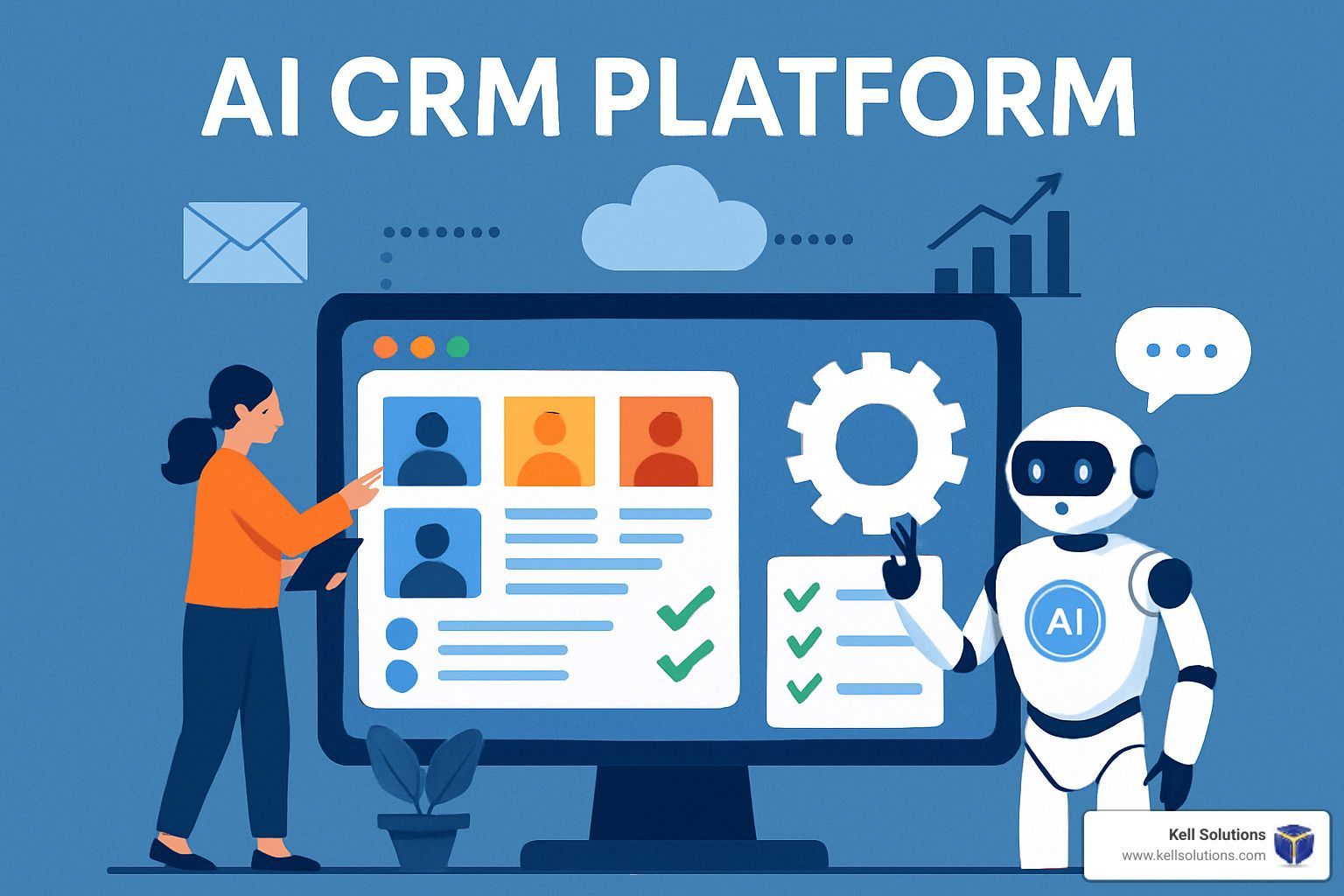Choosing Wisely – The Best AI Platforms for Your Business Needs
Why AI Platforms Are Essential for Modern Business Success
AI platforms are comprehensive software ecosystems that combine multiple artificial intelligence capabilities - from chatbots and content creation to voice assistants and automation - into unified solutions that help businesses streamline operations and boost revenue.
Quick Answer: What Are AI Platforms?
- Complete AI ecosystems that integrate multiple AI tools and capabilities
- End-to-end solutions covering data processing, model training, deployment, and monitoring
- Business-focused platforms designed for specific use cases like customer service, content creation, or workflow automation
- Revenue drivers that can increase business growth by 6-10% according to recent studies
- 24/7 automation tools that handle tasks like appointment booking, lead capture, and customer inquiries
The numbers tell a compelling story. 73% of US companies already use AI in some capacity, and businesses implementing AI platforms see average revenue growth of 6-10%. More importantly for service-based businesses, AI can increase leads and appointments by up to 50% while providing round-the-clock customer engagement.
Unlike standalone AI tools that handle single tasks, modern AI platforms create complete workflows that connect your phone system, calendar, CRM, and customer interactions into one intelligent system. They're designed to work while you sleep - capturing leads, booking appointments, and engaging customers without requiring additional staff.
I'm Gregg Kell, and I've spent over 25 years helping small businesses leverage technology for growth, including developing ai platforms like VoiceGenie AI specifically for service-based companies.
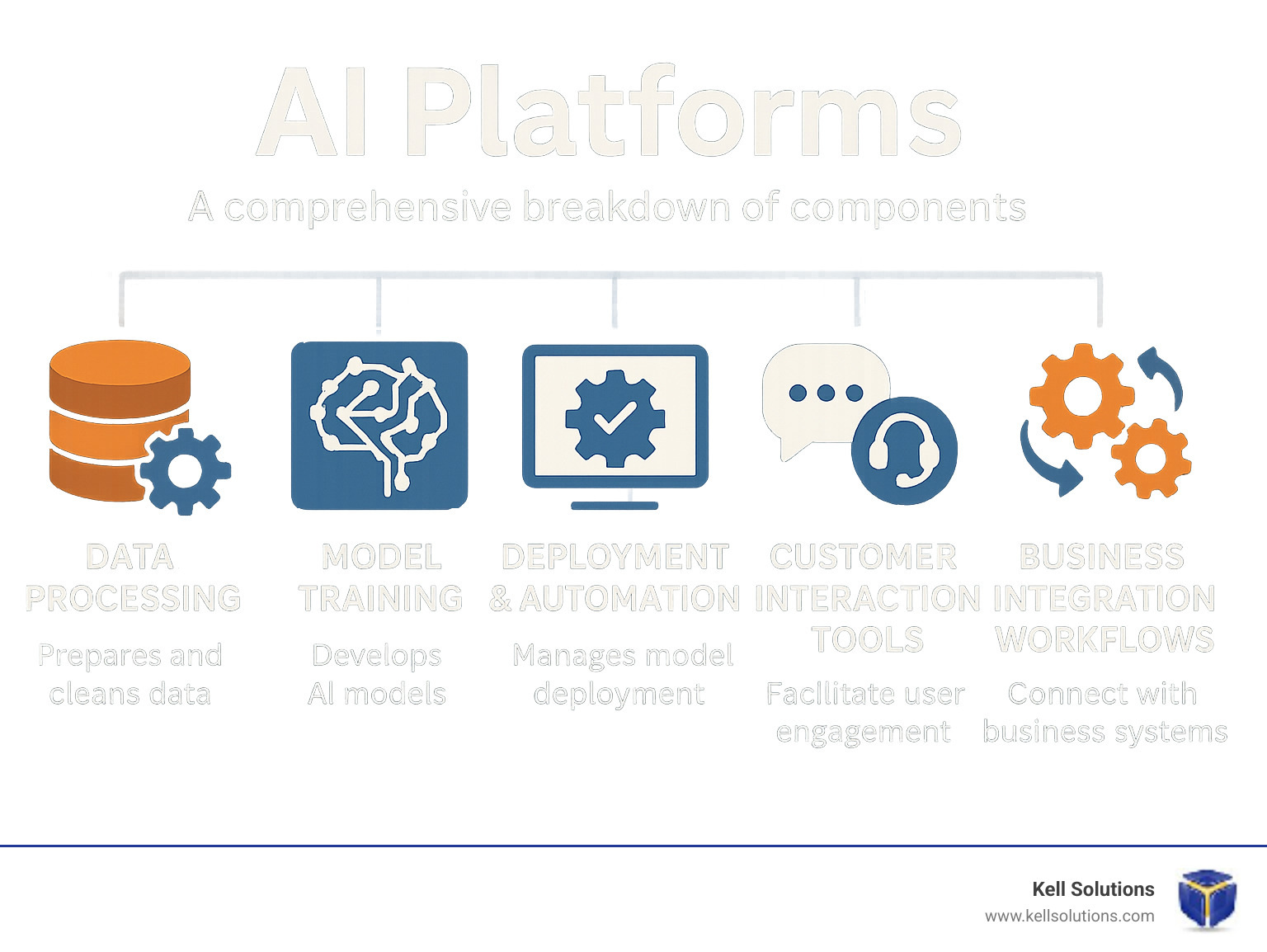
Understanding AI Platforms: From Tools to End-to-End Ecosystems
Imagine the difference between owning a toolbox full of individual tools versus having a complete workshop where everything works together seamlessly. That's exactly how AI platforms differ from standalone AI applications. While individual AI tools might help you write better emails or create social media posts, AI platforms orchestrate multiple AI capabilities into one cohesive business solution that actually transforms how you operate.
AI platforms manage your complete artificial intelligence lifecycle from start to finish. They handle data ingestion and processing, automatically training and fine-tuning models based on your specific business needs, deploying these capabilities across all your customer touchpoints, and continuously monitoring performance to get better over time.
The real magic happens in the data pipeline. Modern AI platforms don't just process information - they learn from every single interaction with your customers. When someone calls your business, the platform captures not only what they said, but how they said it, when they called, what they were looking for, and whether that interaction led to a sale or appointment.
Here's where AutoML(Automated Machine Learning) becomes a game-changer for small businesses. You don't need to hire a team of data scientists or understand complex algorithms. The platform handles model selection, training, and optimization automatically.
| AI Platforms | Point Tools |
|---|---|
| Complete ecosystem with integrated capabilities | Single-function applications |
| Continuous learning from your business data | Static functionality |
| Scales automatically with business growth | Often hit limits as you grow |
| Centralized governance and control | Fragmented management |
| End-to-end workflow automation | Isolated task completion |
How AI Platforms Differ from Stand-Alone AI Apps
The fundamental difference lies in the training-to-operations flow. Standalone AI apps give you whatever functionality they've built - you get what you get. AI platforms create a continuous learning loop where your actual business data makes the AI smarter and more effective for your specific situation.
Think about scalability for a moment. You might start with a simple chatbot that handles 50 customer inquiries per month perfectly well. But what happens when your marketing efforts pay off and you're suddenly getting 500 inquiries? Most individual AI tools struggle or require expensive upgrades. AI platforms are built from the ground up to scale automatically.
Governance and oversight are baked into platforms from day one. Instead of managing five different AI subscriptions with different interfaces and rules, you get centralized control. Your website chat, phone calls, email responses, and social media interactions all follow the same brand guidelines and business rules.
Core Building Blocks
Every modern AI platform rests on four essential technologies that work together like a well-orchestrated team. Large Language Models (LLMs) like GPT-4 provide the conversational intelligence and reasoning power. These models understand context, maintain natural conversation flow, and generate responses that sound genuinely human.
Vector databases revolutionize how information gets stored and retrieved. When a customer asks about your services, the AI doesn't just hunt for matching keywords. It understands the semantic meaning behind their question and finds the most relevant information from your entire knowledge base.
The orchestration layer acts like a smart conductor, coordinating between different AI models and your existing business systems. It decides when to use voice recognition versus text processing, when situations require human intervention, and how to automatically update your CRM with interaction data.
Finally, APIs(Application Programming Interfaces) connect everything together seamlessly. Your AI platform integrates directly with your calendar system, payment processors, inventory management, and customer databases.
The AI Platform Landscape in 2025
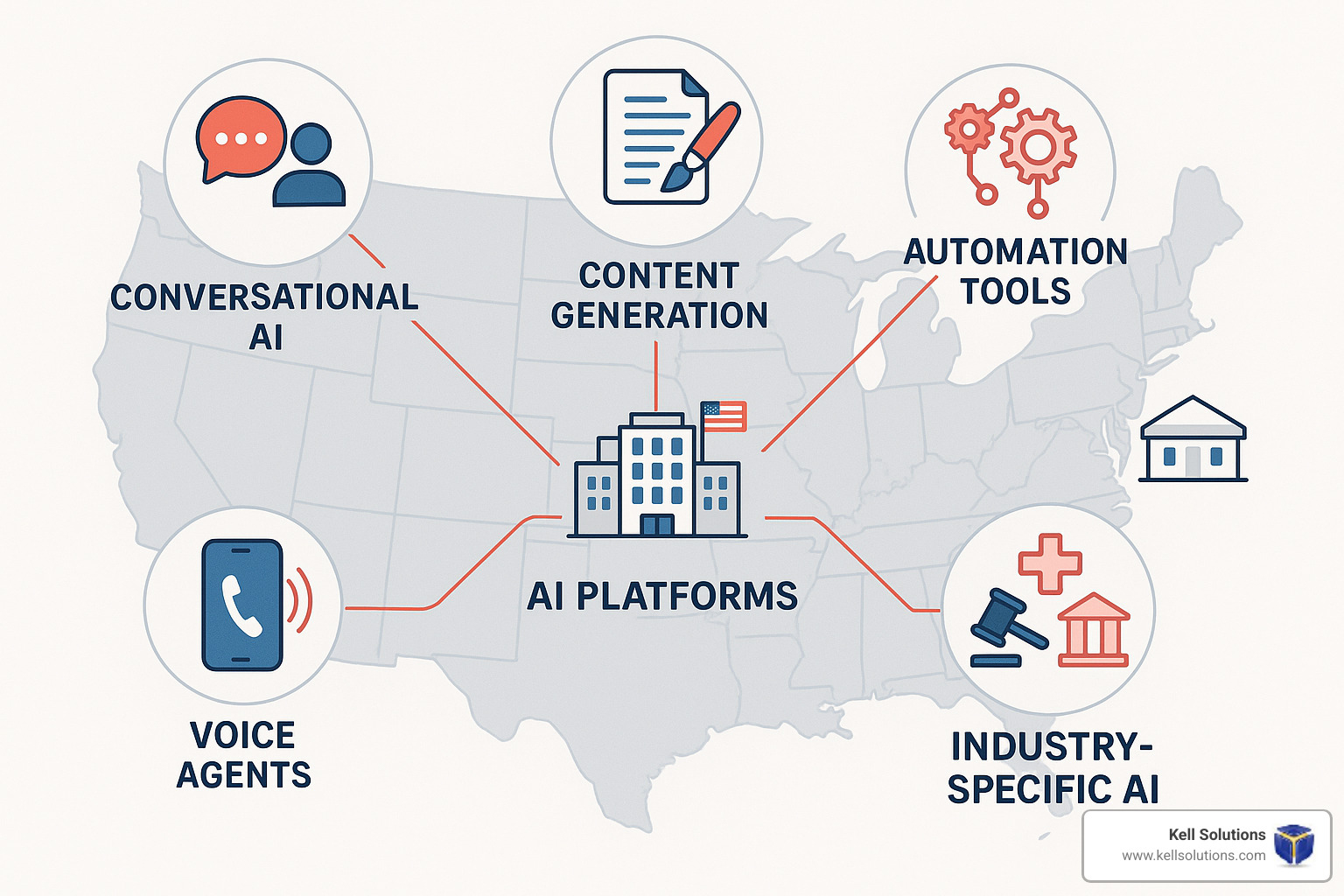
The AI platforms world has grown into something pretty exciting. What started as simple chatbots has blossomed into sophisticated ecosystems that can handle everything from customer conversations to complex business workflows.
Conversational AI platforms lead the charge, powering everything from website chat widgets to sophisticated virtual assistants. These platforms understand context, remember conversations, and can handle multiple customers simultaneously without breaking a sweat.
Content generation platforms have revolutionized how businesses create marketing materials, social media posts, and customer communications. They're not just writing tools anymore - they're creative partners that understand your brand voice and can produce consistent, engaging content across all channels.
Automation platforms are the workhorses of the AI world, orchestrating complex business processes behind the scenes. They connect your various software tools, trigger actions based on customer behavior, and keep your business running smoothly without constant manual intervention.
Voice agent platforms represent one of the most practical applications for service businesses. These platforms, like our VoiceGenie AI, specialize in natural phone conversations - they can answer calls, qualify leads, book appointments, and even handle customer service inquiries with the kind of warmth and professionalism that builds trust.
Industry-specific AI clouds provide ready-made solutions custom for specific sectors. Whether you're in healthcare, legal services, real estate, or home services, these platforms come pre-loaded with industry knowledge and compliance features.
Market Momentum & Adoption Stats
The numbers tell an incredible story of rapid adoption and real business impact. 73% of US companies now use AI in some capacity, which represents a massive shift in how businesses operate. This isn't just tech companies or Fortune 500 corporations - small service businesses are leading much of this adoption.
The financial results speak for themselves. Businesses implementing AI platforms report average revenue growth of 6-10%, with many seeing even higher returns. For service-based businesses, the impact is particularly dramatic. Latest research on business AI growth shows that AI can increase leads and appointments by up to 50%.
What's driving these impressive results? It comes down to availability and responsiveness. When customers can reach your business 24/7, get immediate answers, and book appointments without waiting for callbacks, more prospects convert into paying customers.
Emerging Trends to Watch
Multimodal AI models are becoming the new standard, and they're changing how businesses interact with customers. These platforms can seamlessly switch between text, voice, images, and even video within a single conversation.
AI Operators represent the next evolution beyond simple chatbots. These are AI agents that can actually perform tasks across multiple applications. Instead of just answering questions, they can book appointments in your calendar, update customer records, send personalized follow-up emails, and even process payments.
Retrieval-Augmented Generation (RAG) is solving one of AI's biggest challenges - the tendency to "hallucinate" or make up information. Modern platforms ground their responses in real, current data from your business.
Guardrails and safety measures are becoming more sophisticated as businesses demand reliable, on-brand interactions. Today's platforms include built-in controls that ensure AI stays professional, follows your business rules, and knows when to escalate to human team members.
The open-source surge is democratizing access to enterprise-quality AI. Platforms are leveraging open-source models to provide advanced capabilities at costs that make sense for smaller businesses.
Key AI Platform Capabilities for Business Success
Modern AI platforms take over the repetitive, time-consuming work that keeps service businesses from growing. Instead of stitching together multiple tools, you get one always-on system that picks up the phone, answers questions, books appointments and follows up automatically.
Customer Interaction Solutions
Today’s conversational AI maintains context across channels, so a caller who spoke with your business last week can pick up the thread instantly on chat or email. The AI qualifies prospects, offers available times and places confirmed bookings directly on your calendar—no human juggling required. See real-world results in AI Agents for Businesses.
Content Creation & Automation
AI writing assistants now understand brand guidelines and can generate targeted email sequences, social posts or proposals in seconds. Design tools turn plain prompts into branded graphics, while summarization features distill lengthy reports into key takeaways. Learn more at AI Integration in Business Processes.
Workflow Orchestration & Automation
Beyond simple “if-this-then-that” rules, platform orchestration layers make decisions in real time—updating the CRM, triggering follow-up emails or rescheduling when a customer changes plans. Because these steps live inside one ecosystem, data never falls through the cracks.
Voice & Call Engagement Solutions
Voice technology is finally conversational. A caller can interrupt, ask for clarification, or change direction and the system keeps pace. Our VoiceGenie AI greets callers 24/7, gathers key details, books appointments and records every interaction for easy review.
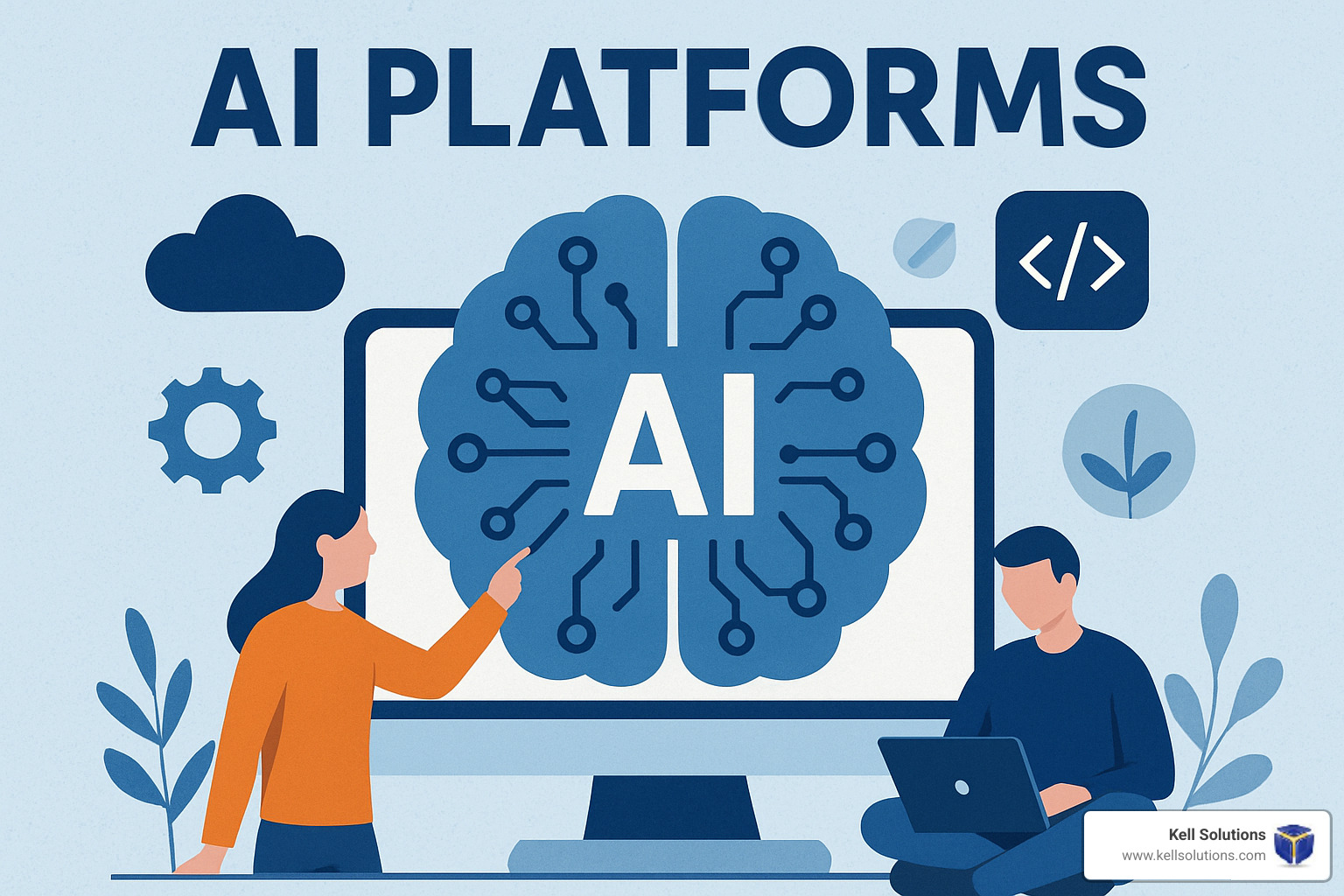
Research, Data & Insights Platforms
By analysing transcripts and CRM data, AI uncovers trends, predicts churn, and highlights upsell opportunities—insights that once took days with spreadsheets. Harvard Business Review shows firms using AI for increasing leads and appointments dramatically lift conversion rates.
How to Choose the Right AI Platform
With dozens of vendors claiming to “do everything,” start by listing the one or two pains that cost you the most money or time. If after-hours calls slip through the cracks, focus on voice automation; if proposals eat your week, look at content generation. Matching platform strengths to a clear use case narrows the field fast.
Integration & Pricing
Confirm the platform connects to the systems you already rely on—calendar, CRM, email, payments—through native integrations or open APIs. Compare total cost, not just the headline subscription: onboarding, support, add-on fees and scale-up charges can vary widely.
Data Privacy & Oversight
Choose providers that encrypt data, follow regulations like GDPR or SOC 2, and give you granular controls. Even the smartest AI needs human backup, so ensure a smooth hand-off to staff when conversations become complex.
For a feature-by-feature walkthrough, see our AI Customer Service Guide.
Evaluation Checklist
- Security certifications (SOC 2, ISO, HIPAA if required)
- Clear data retention and deletion policies
- Transparent, scalable pricing
- Roadmap that aligns with your future needs
Pilot & Scale Strategy
Run a quick pilot—often just routing after-hours calls for a month—to gather data on response times, booked appointments and customer satisfaction. Document lessons learned, adjust prompts or workflows, then roll out to additional channels with confidence.
Frequently Asked Questions about AI Platforms
What is the difference between an AI platform and an AI tool?
Here's the simplest way to think about it: an AI tool is like a hammer - great for one specific job. An AI platform is like a complete workshop with all the tools working together to build something amazing.
Most AI tools handle just one task. You might use ChatGPT to write emails, or a transcription tool to convert voice to text. But what happens when you need those tools to work together? That's where you run into problems - they don't talk to each other, and you're stuck copying and pasting between different applications.
AI platforms solve this by bringing multiple AI capabilities under one roof. Take our VoiceGenie AI, for example. It doesn't just answer your phone calls - it understands what callers need, checks your calendar for availability, books appointments, sends confirmation emails, and updates your customer records. All of this happens automatically, without you lifting a finger.
The real magic happens with continuous learning. While individual tools stay pretty much the same, platforms get smarter over time. Every call your AI voice agent handles teaches it more about your business, your customers, and what works best. It's like having an employee who never stops improving.
How do AI platforms integrate with existing software like Slack or Google Workspace?
The good news is that modern AI platforms are built to play nicely with the tools you already use. You don't need to throw out your current systems or learn completely new ways of working.
Most platforms connect through something called APIs - think of them as digital bridges that let different software programs share information. The best part? You usually don't need to know anything about the technical details. The connections happen automatically in the background.
Let's say you use Google Calendar for scheduling. When someone calls your AI voice agent to book an appointment, the platform checks your real calendar, finds available times, and actually books the appointment - all without you touching anything. The same thing works with your email system, customer database, or project management tools.
Slack integrations are particularly handy. Your AI can send notifications when important things happen - like "New lead captured from website" or "Appointment booked for tomorrow at 2 PM." Some platforms even let you chat with the AI directly in Slack to get quick answers or trigger specific actions.
The key is that you keep working the way you're comfortable with. The AI just makes everything work better together.
What are the common pricing models for AI platforms?
AI platform pricing can seem confusing at first, but it usually falls into a few common patterns. Understanding these helps you pick the right fit for your business size and usage.
Pay-as-you-use pricing charges based on activity - maybe per call handled, per message sent, or per document processed. This works great for smaller businesses because you only pay for what you actually use. If you have a slow month, your costs go down automatically.
Monthly subscription models offer different tiers with various features and usage limits. You might start with a basic plan that handles up to 100 calls per month, then upgrade as your business grows. This gives you predictable costs, which many business owners prefer for budgeting.
Some platforms use per-user pricing, charging for each person who uses the system. This makes sense for internal tools but doesn't work as well for customer-facing features like voice agents, since you can't control how many customers call.
Hybrid approaches combine elements - perhaps a base monthly fee plus extra charges if you exceed certain usage limits. This gives you cost predictability while allowing for busy periods.
When comparing options, look beyond the sticker price. Consider setup costs, training time, and how much the platform will actually save you in staff time or increased revenue. Sometimes a slightly more expensive platform pays for itself quickly through better features or easier integration.
The most important thing is finding a pricing model that grows with your business without creating budget surprises.
Conclusion
The AI platforms revolution isn't coming - it's already here, and the businesses that accept it now are positioning themselves for extraordinary growth. What we've seen consistently is that success doesn't require massive budgets or technical expertise. It requires clarity about your goals and the courage to take that first step.
AI platforms have matured beyond the experimental phase. They're delivering real results for real businesses: increased revenue, captured leads, and improved customer satisfaction. The 73% of companies already using AI aren't early adopters anymore - they're the smart majority who recognized that AI isn't about replacing human connection, but enhancing it.
At Kell Solutions, we've witnessed this change firsthand. Our VoiceGenie AI shows what's possible when you focus on solving specific business problems rather than chasing flashy technology. Every missed call represents lost revenue. Every after-hours inquiry that goes unanswered is an opportunity for competitors. AI platforms solve these problems while you sleep.
The businesses thriving with AI share common traits. They start with clear use cases, implement thoughtfully, and measure results consistently. They understand that AI isn't magic - it's a powerful tool that requires proper setup and ongoing attention. Most importantly, they recognize that the best AI feels invisible to customers while being invaluable to business owners.
Your customers don't care whether they're talking to AI or humans. They care about getting helpful, accurate responses quickly. They want their problems solved and their questions answered. AI platforms deliver this experience consistently, professionally, and affordably.
The window for competitive advantage is still open, but it's closing. As AI becomes standard across industries, the businesses that implement it well will pull ahead of those still hesitating. The question isn't whether you'll eventually use AI - it's whether you'll be among the leaders or followers.
Ready to find how AI can transform your customer engagement and capture every opportunity? Request a VoiceGenie AI demo and see how our platform helps businesses like yours never miss another lead.

📚 About the Author
Gregg Kell is a seasoned digital marketing strategist and founder of Kell Web Solutions, Inc., helping professional service firms grow through innovative AI-powered solutions like VoiceGenie AI. With over 20 years of experience in web development, lead generation, and business automation, Gregg is passionate about helping small businesses maximize growth and profitability through cutting-edge technologies.
When he's not helping businesses boost their bottom line, Gregg enjoys life by the beach in Laguna Beach, California, with his wife Debbie, celebrating over 40 years of marriage and entrepreneurial trips.
👉 Explore More from Gregg:
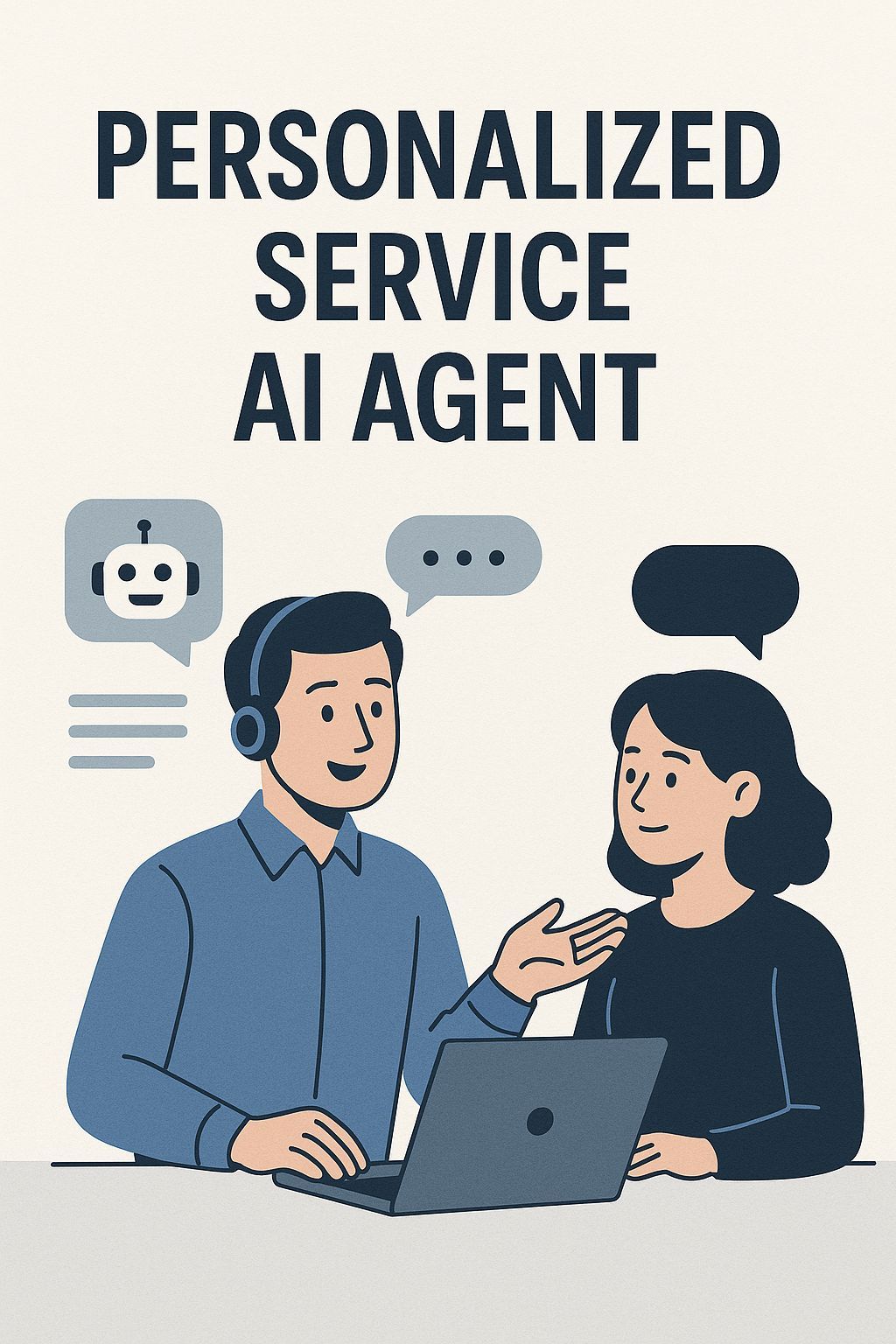

Orange County HVAC Google AI Overview Domination: 7 Proven Strategies to Capture Featured AI Results




